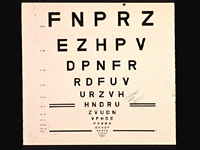|
|||||||||||||||||||||||||||||||||||||||||
| Community Eye Health - 5666 | |||||||||||||||||||||||||||||||||||||||||
The Graduate Diploma in Community Eye Health offers specialised training in a range of areas related to community eye health, including the following aspects of the field: needs assessment, health economics, epidemiology, advocacy, and the "Vision 2020: The Right to Sight" global initiative. The program is conducted mainly at the International centre for Advancement of Rural Eye Care (ICARE), part of the LV Prasad Eye Institute (LVPEI), Hyderabad, India. The program comprises of 36 units of credit, gained by successful completion of six compulsory courses. Achievement of an average mark of 65% or above in these courses allows the option to transferring to the Master in Community Eye Health. The further 12* units of credit required for the Masters are gained by completion of a research project which may be conducted at ICARE, LVPEI, or the University of New South Wales, or at the candidate's home location (if appropriate supervision is available at that location). In all cases, joint supervision will be arranged between academic staff of the LVPEI and the University of New South Wales.
*See rules on articulation. Program Objectives and Learning Outcomes The program aims to produce health professionals who are innovative leaders with an understanding of the principles of community eye health and their applications
The award of Graduate Diploma in Community Eye Health will be awarded on successful completion of the courses listed below.
Please refer to the School of Optometry and Vision Science
http://www.optom.unsw.edu.au Rules of Articulation This program will articulate with the proposed Master of Community Eye Health. On completion of the Graduate Diploma in Community Eye Health with a Credit average (at least 65%), it will be possible to transfer to the Masters. If graduating with both programs, an academic penalty of 6UOC will apply. The additional 12-6 units of credit required to complete the Masters may be achieved by completion of the 12 UOC research project within the Masters (OPTM7308), in addition to one of the following two courses offered in the Master of Optometry program: Public Health Optometry (distance learning)OPTM7110 or Research Skills in Optomerty (OPTM7108), (research may be conducted at LVPEI or the University of New South Wales, with joint supervision at both centres).
For information regarding fees for UNSW programs, please refer to the following website: https://my.unsw.edu.au/student/fees/FeesMainPage.html
|
|||||||||||||||||||||||||||||||||||||||||



